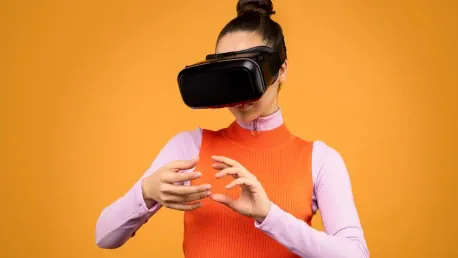Google’s recent introduction of Android XR has sparked considerable excitement within the world of virtual and augmented reality, challenging Meta’s well-established Horizon OS in the mixed reality landscape. Announced just last week, the new platform has garnered rapid traction through strategic partnerships with prominent software and hardware developers. This article delves into the implications of Android XR, the competitive landscape it presents in relation to Meta’s Horizon OS, and the emerging trends and perspectives from industry stakeholders.
A Unified and Open Platform for XR Devices
Android XR aims to provide a unified and open platform for XR devices, similar to what Android OS has achieved for smartphones, tablets, smart TVs, smartwatches, and cars. This unified approach promises to create a standardized ecosystem beneficial for both consumers and developers by fostering innovation through a broad and interoperable framework. The excitement surrounding Android XR is driven by its potential to support a diverse range of XR devices, from VR headsets to AR glasses, all within the same ecosystem. This has the potential to significantly simplify development and usage, making XR technology more accessible to a broader audience.
Resolution Games’ CTO Johan Gastrin emphasized the platform’s ability to accelerate standardization within the XR space. Such standardization is anticipated to level the playing field for hardware manufacturers and software developers, allowing them to create customized experiences with a reliable set of tools and frameworks tailored to their specific devices. According to Gastrin, Android XR holds the promise of broadening the audience for XR experiences by supporting a wide variety of devices and fostering a vibrant ecosystem. This ambitious goal aims to make the development of XR content more streamlined and accessible, increasing the overall appeal and penetration of XR technology.
Strong Initial Support from Hardware Manufacturers
The announcement of Android XR has generated significant interest among leading hardware manufacturers including Samsung, Sony, Lynx, and XREAL, signaling strong initial support for the platform. Resolution Games was among the first to commit to porting its popular game, Demeo, to Android XR. Gastrin highlighted several advantages of transitioning from a Meta-centric development environment to Android XR, noting that both platforms adhere to the OpenXR standard and extensively use Unity for game development. This compatibility promises a seamless development process, encouraging more creators to bring their titles to Android XR.
The competition between Google’s Android XR and Meta’s Horizon OS is defined by Google’s extensive experience and expansive ecosystem competing against Meta’s entrenched position in the VR/AR market. Google’s strategic decision to utilize an open platform mirrors its successful approach with Android OS in the smartphone market, potentially paving the way for similar success in the XR space. Meanwhile, Meta remains a formidable competitor, with its Horizon OS already powering the widely praised Quest headsets. The dynamic competition between these two tech giants is expected to accelerate innovation and bring more sophisticated and inclusive XR solutions to the market.
Google’s Collaborative Approach vs. Meta’s Proprietary Hardware
A crucial aspect of Android XR’s strategy is Google’s decision not to produce its own XR hardware but instead collaborate with third-party manufacturers. This approach is consistent with Android OS’s strategy and opens the door for various devices to adopt the platform, ensuring a wide range of hardware compatibility. Conversely, Meta utilizes a different strategy by combining its Horizon OS with proprietary hardware, specifically the Quest headsets, ensuring tight integration and control over user experience. Despite this proprietary approach, Meta has expressed intentions to open Horizon OS to third-party hardware. Companies like Asus, Lenovo, and Microsoft have shown interest, but developments in this area have remained relatively quiet since the initial announcement in April.
The trend towards more open and interoperable platforms in the XR domain is evident with both Android XR and Horizon OS supporting the OpenXR standard. This support aims to simplify development and ensure broad compatibility across devices, easing the fragmentation that currently exists within the XR market and fostering a more cohesive development environment. Such standardization is pivotal for reducing development hurdles and enabling a smooth user experience across different XR devices, which ultimately benefits both developers and consumers by providing consistent and interconnected experiences.
Leveraging Existing Content and AI Integration
Google’s recent unveiling of Android XR has generated significant buzz in the virtual and augmented reality sectors, directly challenging Meta’s well-established Horizon OS in the mixed reality arena. This newly launched platform has quickly gained momentum, thanks to strategic alliances with key players in both software and hardware development. Through partnering with prominent developers, Google aims to carve a niche in an area long dominated by Meta.
This article explores the impact of Android XR on the market, juxtaposing it with Meta’s Horizon OS to understand the new competitive dynamics at play. It will also shed light on the emerging trends and perspectives from industry experts and stakeholders who are optimistic about the future possibilities brought forth by Android XR. As the battleground for mixed reality supremacy heats up, the industry’s landscape is set to see substantial innovation and growth, ushering in a new era of immersive technologies suited for both consumers and developers alike.









